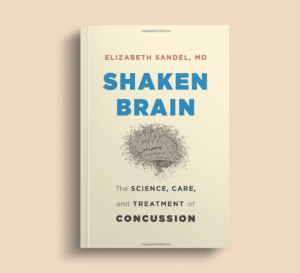The Human Brain: Highly Evolved or Doomed to Failure?

Protecting our planet so it can continue to sustain life requires a comprehensive and collective vision, with clear strategies and tactics. Richer nations have the resources to do the most to prevent catastrophe, as well as the greatest responsibility for causing it, but are taking little or no action. And poorer nations suffer the consequences.
What is it about the highly evolved human brain that is not capable of saving our planet from extinction? Despite advances in climate science and increasingly dire predictions, we don’t seem to act deliberately or effectively to protect the natural world. Greed and materialism are a big part of the problem but so are other destructive human traits and behaviors. Can we foster constructive traits and behaviors to save our world?
Defining Human Traits and Behaviors
Most religions frame discussions about human frailty by calling out human traits such as greed, envy, sloth, pride, and gluttony (to name a few Christian sins) while extolling positive attributes (virtues) such as faith, hope, charity, justice, goodness, honesty, wisdom, prudence, fortitude, compassion, diligence, kindness, patience, and humility. These frameworks provide ways to learn about human traits and behaviors.
Research from the neurosciences, social sciences, and evolutionary biology reveal categories and frameworks for understanding the human capacities for destructive and constructive actions. Here are my categories for this blog series:
Destructive Traits and Behaviors
Materialism
greed, envy, and self-interest
Lack of vision
myopia and denialism
Inaction
procrastination and sloth
Credulity
irrationality and gullibility
Us vs. them
tribalism and scapegoating
Followers
sycophants, and conformists
Constructive Traits and Behaviors
Generosity
selflessness, charity, compassion
Insight
perception and acceptance
Assertiveness
determination and action
Wisdom
knowledge and truth
Cooperation
unity and collaboration
Courage
fearlessness, resilience
Materialism: Greed, Envy, and Self-Interest
As the number of billionaires multiply, widespread social inequality, social deprivation, and poverty continue and are increasing. Corporations profiteer at the expense of society. Donald Berwick of the Institute for Healthcare Improvement calls greed an existential threat in US healthcare. Robert Reich of the University of California/Berkeley argues that corporate greed, not an overheated economy propels Inflation (what he calls “greedflation”). What is greed and how do brain mechanisms work in greedy individuals?
How Is Greed Measured by Scientists?
Researchers who study greed use various tools such as the Dispositional Greed Scale (DGS), developed by Seuntjens, Zeelenberg, van de Ven, and Breugelmans of the Netherlands. The term “dispositional” refers to the view that greed is a relatively stable trait not a transient one. Studies have shown that greed is normally distributed among populations. Here are the seven items on the Scale:
- I always want more;
- Actually, I’m kind of greedy;
- One can never have too much money;
- As soon as I have acquired something, I start to think about the next thing I want;
- It doesn’t matter how much I have, I’m never completely satisfied;
- My life motto is ‘more is better’;
- I can’t imagine having too many things.
The DGS has been used to document positive correlations with maximization (regarding wealth accumulation), materialism, self-interest, envy, and impulsiveness, as well as negative correlations with self-control and life satisfaction. Greed has economic consequences for the individual and for society. For example, greedy people allocate more money to themselves in dictator games and take more in scenarios that involve resources.
Eric Mercadante and Jessica Tracy explored the question “How Does It Feel to Be Greedy?: The Role of Pride in Avaricious Acquisition.” Following completion of four related studies, they concluded that “...greedy people experience a boost of pride from acquisition but these feelings are short-lived, potentially leading to the perpetual acquisitiveness characteristic of dispositional greed.”
In a recent study entitled “Greed: What Is It Good For?,” social psychologists Karlijn Hoyer and associates define greed as the excessive or insatiable desire to acquire more and more material possessions. Their definition also includes nonmaterial outcomes such as sex, food, or power. Greed is related to envy (the view that others are better off and undeserving), and self-interest (a desire for advantage and well-being).
In a study of more than two thousand Dutch inhabitants, the researchers found that greedy individuals had comparatively higher earnings (economic outcome), more sexual partners with shorter relationships (evolutionary outcome), and lower scores on measures of well-being (psychological outcome).
In comparing self-interested subjects to greedy subjects, they found that the two groups differed in economic outcomes (and partly in terms of evolutionary outcomes), but resembled each other in psychological outcomes. They conclude that greed may be “good for income but bad for happiness.”
Brain Mechanisms and Greed
Researchers in China have explored the neural mechanisms of the “Greed Personality Trait” (GPT). Studies like these look for anatomic and neurophysiologic correlates with human behaviors. Shiyu Wei and colleagues define greed as “the desire to acquire more and the dissatisfaction of never having enough.”
Their findings associated greed with negative emotions (depression, loss of interest, negative affect), lower well-being scores, and aggressive behaviors. They found that certain brain region differences (in brain volumes and gray and white matter) were associated with negative emotions and aggression. Keing Jiang and colleagues explored the relationship between GPT, fatalism, and impulsivity, and mapped brain circuitry that may explain these relationships.
Greed and the Greater Good?
Economists and evolutionary biologists have argued that greed (the search for rewards) can stimulate productivity, economic growth, and innovation, and is essential for human well-being and survival. However, social science and neuroscience research show associations between greed and undesirable traits, behaviors, and emotions.
In their article “The Good, Bad and Ugly of Dispositional Greed,” Zeelenberg and Bereugelmans conclude that “... higher household income reported by greedy people may be an illustration of such effects at the level of the household, but to the best of our knowledge, beneficial effects of greed on the macro level have not yet been well documented.”
How do we solve the problem of greed and the inequalities it creates? That’s a tough nut to crack. What creates a spirit of generosity? Can brain science and social science find answers? Can we find strategies that promote generosity as an antidote?
Generosity, and the related topics of selflessness, charity, and compassion will be the topic of my next blog post.
You Might Also Like
A Brief History of PM&R
In this podcast, Dr. Elizabeth Sandel gives a brief history of the medical specialty of PM&R. She outlines the major US and world events that helped to lay the foundation for physical and rehabilitation medicine. She emphasizes the role of early leaders such as Frank Krusen, Howard Rusk and others who helped to establish the field within organized medicine.
Dr. Elizabeth Sandel: Former AAPM&R Executive Discusses Critical Elements of the Field
In part one, Dr. Sandel talks about physical medicine and rehabilitation and it’s broad scope. In part two, she discusses her mission to educate the public about brain injuries, including concussion. In part three, she discusses what happens to the brain with concussions and repeated concussions. She ends with a case of a patient with a complex diagnosis after a traumatic event that required the diagnosis in order for the best treatment approaches.
Dr. Sandel: 2025 Plans
Here’s an update on Dr. Sandel’s professional plans for 2025.
Keep up to date
Get updates on the latest in concussion, brain health, and science-related tools from Dr. Elizabeth Sandel, M.D.
By clicking SIGN UP, you agree to receive emails from Dr. Sandel and agree to our terms of use and privacy policy.
Get the book!



